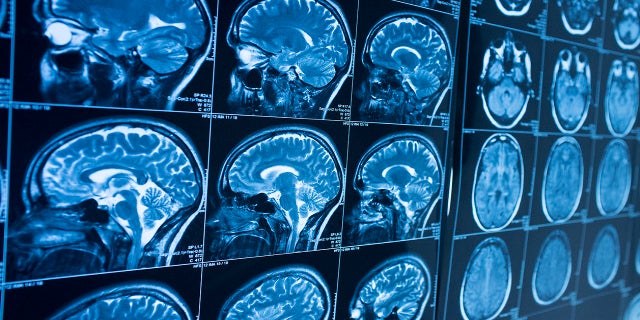Washington, D.C. – America’s medical community appears to be embracing artificial intelligence products in an effort to speed up patient care and prevent burnout among health care professionals.
AI technology is already rolling out in doctors’ offices, hospitals and clinics nationwide through a variety of formats.
California-based Regard has launched its AI product, a system that enables doctors to automate routine tasks, in 30 hospitals, its CEO said.
ARTIFICIAL INTELLIGENCE WON’T EVER BE ABLE TO COMPREHEND THIS ONE THING
“What we started developing was essentially an AI copilot for doctors,” Eli Ben-Joseph, co-founder and CEO of Regard, told Fox News.
The company’s software allows computers to diagnose a patient, assist with doctors’ notes and alert professionals when something may have been overlooked.

Doctors can automate routine tasks in a number of hospitals, thanks to a California-based company called Regard, which has launched an AI product. (iStock)
The company told Fox News that the solution’s ability to streamline workflows may allow doctors to spend less time on paperwork and administrative tasks.
AI AND HEART HEALTH: MACHINES DO A BETTER JOB OF READING ULTRASOUNDS THAN SONOGRAPHERS DO, SAYS STUDY
“We like to say it’s almost like having an AI med student or an AI medical resident that helps the doctors with their day-to-day,” added Ben-Joseph.
AI is expected to grow significantly
The AI medical industry is expected to grow significantly in the next several years.

Regard’s software (not pictured) allows computers to diagnose a patient, assist with doctors’ notes and alert professionals when something may have been overlooked. (iStock)
The technology may save U.S. taxpayers hundreds of billions of dollars in health care costs on an annual basis, researchers found.
Separate studies, however, have indicated that the public remains cautious about embracing AI when it comes to medical care.

AI technology may save U.S. taxpayers hundreds of billions of dollars in health care costs on an annual basis, researchers found. (iStock)
A survey published by Pew Research found that 60{b56f7a0c6479bc075d08fb7619591a4c4023144d1b4aceb7f3fe2776303deb2f} of Americans would be “uncomfortable” with their health care providers relying on AI when administering services.
CLICK HERE TO SIGN UP FOR OUR HEALTH NEWSLETTER
Medical experts told Fox News they’re not surprised that people have reservations about AI being tied to their medical records and treatments.
CLICK HERE TO GET THE FOX NEWS APP
“Patients simply don’t trust a machine over a human being, but they are welcoming of a machine to assist a surgeon or a physician in making a diagnosis or remedying care,” said Dr. Marty Makary, a professor of surgery at Johns Hopkins University and a Fox News medical contributor.
